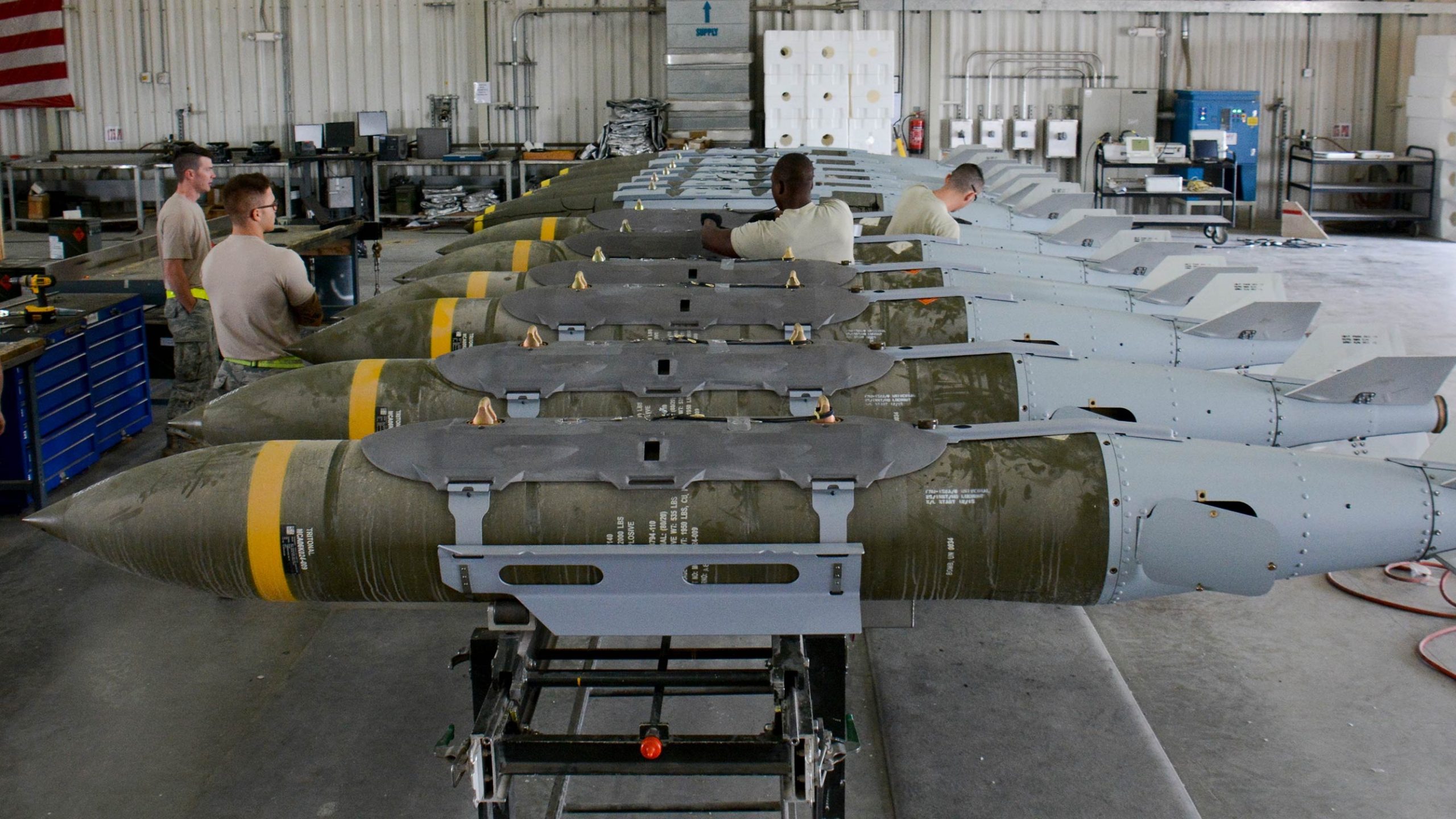The United States government announced on Monday, June 30, 2025, the approval of a significant military sale to Israel valued at $510 million.
This transaction, according to online media reports, involves advanced bomb guidance kits and related support equipment, intended to replenish Israel’s stockpile following extensive munitions use during its recent conflict with Iran.
Strengthening Israel’s Defense Capabilities
According to a statement from the US Defense Security Cooperation Agency (DSCA), the proposed sale aims to bolster Israel’s ability to confront both current and emerging threats.
The enhanced precision strike capability will help Israel protect its borders, critical infrastructure, and population centers more effectively.
“The United States is committed to the security of Israel, and it is vital to US national interests to assist Israel to develop and maintain a strong and ready self-defense capability,” the DSCA emphasized.
This underscores the longstanding strategic partnership between the two nations, particularly in the realm of defense cooperation.
Congressional Oversight and Approval Process
While the State Department has approved the potential sale, the transaction still requires formal authorization from the US Congress.
The DSCA has already notified Congress, initiating the legislative review process.
This step is a standard procedure for arms sales of this magnitude and strategic importance, ensuring transparency and oversight.
Context: Israel’s Recent Military Actions Against Iran
The timing of this sale is closely linked to Israel’s unprecedented air campaign launched on June 13, targeting Iranian nuclear facilities, key scientists, and senior military figures.
Israel’s objective has been to halt Iran’s nuclear program, which Tehran insists is for peaceful civilian purposes.
However, the United States and many other international actors contend that Iran’s ambitions include developing nuclear weapons.
This military offensive marked a significant escalation in regional tensions, with Israel deploying a wide range of precision-guided munitions.
The recent conflict saw Israel expending substantial quantities of advanced weaponry, thereby necessitating urgent resupply to maintain its operational readiness.
US Policy Shifts and Military Involvement
The backdrop to these developments includes the US’s evolving stance on Iran’s nuclear ambitions.
Former President Donald Trump had initially pursued diplomatic efforts to replace the 2015 nuclear deal with Tehran after withdrawing from it in 2018.
However, after weeks of diplomatic maneuvering, Trump ultimately authorized direct military strikes on Iranian nuclear sites, signaling a hardline approach.
This shift from diplomacy to military action reflected growing concerns within the US administration about Iran’s nuclear progress and regional destabilization efforts.
Ceasefire and Future Prospects
A ceasefire brought an end to the immediate conflict last week, offering a temporary respite from hostilities.
Nevertheless, Israeli Prime Minister Benjamin Netanyahu has made it clear that Israel remains determined to prevent Iran from ever reconstructing its nuclear infrastructure.
This stance suggests that while active combat has paused, the underlying tensions and risk of renewed conflict persist.
Netanyahu’s firm position raises the possibility of future confrontations, as Israel continues to prioritize its national security and regional dominance.
Implications for Global Security and Regional Stability
For a global audience aged 20 to 65, this development highlights the complex interplay of military strategy, diplomacy, and geopolitical interests in the Middle East.
The US’s decision to supply Israel with advanced weaponry reflects its commitment to maintaining a balance of power in a volatile region.
The sale also illustrates how military aid is used as a tool of foreign policy to support allies facing existential threats.
It underscores the broader challenges of addressing nuclear proliferation, regional rivalries, and the pursuit of peace in a historically unstable area.
What are bomb guidance kits?
Bomb guidance kits are devices or systems that convert unguided bombs (also known as “dumb bombs”) into precision-guided munitions (“smart bombs”).
They improve accuracy by allowing the bomb to steer toward a target rather than just falling on a ballistic path after being dropped.
What They Do:
These kits typically include:
GPS navigation or laser guidance systems
Control fins and actuators (to adjust the bomb’s flight mid-air)
Inertial navigation systems (INS) for improved targeting in GPS-denied environments
Why They Matter:
Without guidance kits, traditional bombs have a much wider margin of error and can miss their targets, especially from high altitudes.
With these kits:
Military forces can strike more accurately
Reduce collateral damage
Use fewer munitions per target
Hit moving or fortified targets
Example:
One of the most well-known bomb guidance kits is the JDAM (Joint Direct Attack Munition) used by the U.S. military.
It attaches to a standard bomb and turns it into a precision weapon using GPS and inertial navigation.
Conclusion
The approval of the $510 million sale of bomb guidance kits to Israel marks a significant step in reinforcing the country’s defense capabilities amid heightened tensions with Iran.
While the ceasefire offers a pause in active hostilities, the firm resolve expressed by Israeli leadership indicates that security concerns will continue to shape the region’s dynamics.
As the US Congress reviews the sale, the global community watches closely, aware that developments in the Middle East have far-reaching consequences for international peace and security.
This transaction not only strengthens Israel’s military readiness but also serves as a reminder of the ongoing complexities surrounding Iran’s nuclear ambitions and the fragile nature of regional stability.







